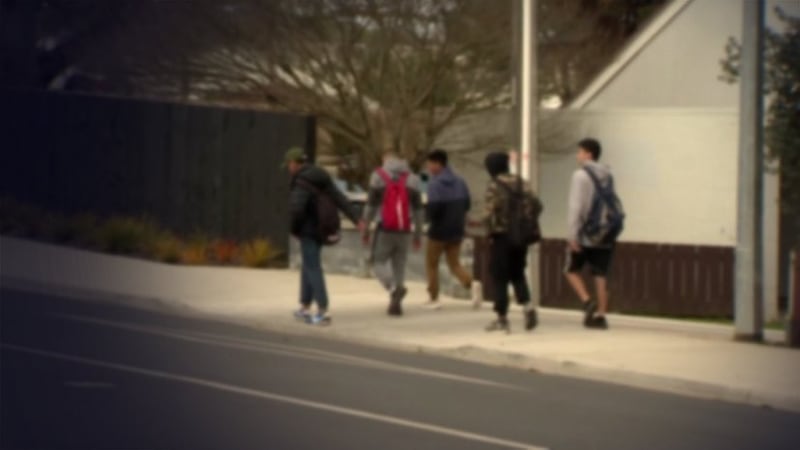Youth workers in Whangārei say housing deprivation and homelessness are growing among youth in Whangārei.
A research report released by youth advocates in Whangārei paints a bleak picture of youth homelessness in the city.
The research, which looked at factors that contribute to taitamariki (youth) experiencing housing deprivation in Whangārei, was developed in partnership with the Ministry of Housing and Urban Development and, according to the research, there are cracks in the system which place young people at undue risk.
The report Youth Experiencing Homelessness was undertaken to inform the development of a youth housing plan for Whangārei and was spearheaded by community advocates 155 Whare Āwhina and a group named Whare Finders.
155 Whare Āwhina chief executive Liz Cassidy-Nelson says the situation is getting progressively worse.
"So young people are living in cars, and young people creating shacks in public places so they can have somewhere to sleep for the night. Young people couch surfing. Young people being in really, really unsafe spaces but with nowhere else to go."
Serious shortage
"The story has been like 20 years in the making. A good three years ago, we talked about youth homelessness, and we knew it was a problem seven years earlier. Today we finally got the stories from taitamariki that are very sad and make us all very mamae but very real."
The group interviewed youth who ranged in age from 16-24 years of age, and the report found a serious shortage of housing for youth.
Research author Ngaire Rae says there is an acute lack of options for youth facing housing issues.
"There is some emergency housing and some transitional housing available in Whangārei but very few, if any, are available or targeted for taitamariki."
Specific needs
"We know that if we develop housing responses specifically for young people we can provide them with the support that they need. It's a really pivotal time in their life."
Eighteen youths were interviewed for the research, and almost all of those interviewed had some experience of housing issues such as safety. Carroll Peters from 155 Whare Āwhina says the research confirms what youth workers are seeing in Whangārei.
"Young people's housing is not the same as other people's. They have many different needs. So they need a specific response from the community."
'The right aunty'
"Young people who are living on the streets, there are people who are couch surfing, and often, either Oranga Tamariki or the Ministry for Social Development doesn't know how to deal with these young people."
Rae says one of the major findings of the research was the need for whānau involvement.
"What we found is that actually, it was whānau in the end who did support our taitamariki. It wasn't services. It was finding the right aunty or the right cousin, or they eventually got to be with their grandparents."
Oranga Tamariki looks after children under 16 in this area while the Ministry for Social Development helps Young people under the age of 18 access emergency housing through its youth service
Oranga Tamariki transitional deputy chief executive services for children and families Dee McManus-Emery says the agency is concerned about the needs of young people in regards to homelessness and believes every child in New Zealand deserves to live in a warm, happy home.
"Addressing the issue of youth homelessness needs to be a cross-agency response, and Oranga Tamariki welcomes discussions on this.
Agencies' help
"Oranga Tamariki is dedicated to supporting any child in New Zealand whose wellbeing is at significant risk of harm now, or in the future."
The Ministry of Social Development's regional commissioner Northland Graham MacPherson, Regional Commissioner - Northland says the ministry works closely with community organisations, accommodation providers and other agencies to support rangatahi in housing distress.
"Our support may take the form of an emergency housing special needs grant but this is a last resort, particularly for young people.
"Our first move is to look at all the other options they might have to avoid homelessness.
"This could include financial support to help people stay with family or friends, help with rent if they’re behind, help with paying bond for a new property, help negotiating with landlords to retain a tenancy, exploring accommodation options they can afford, or helping them into transitional housing."
MacPherson says if young people do stay in emergency accommodation, there are dedicated youth coaches, case managers and housing navigators, who may be able help them address the barriers they face finding and sustaining suitable housing.
"There is high demand and a limited supply of emergency housing but we are committed to ensuring people who come to us in urgent need do not have to live in cars or sleep rough."

